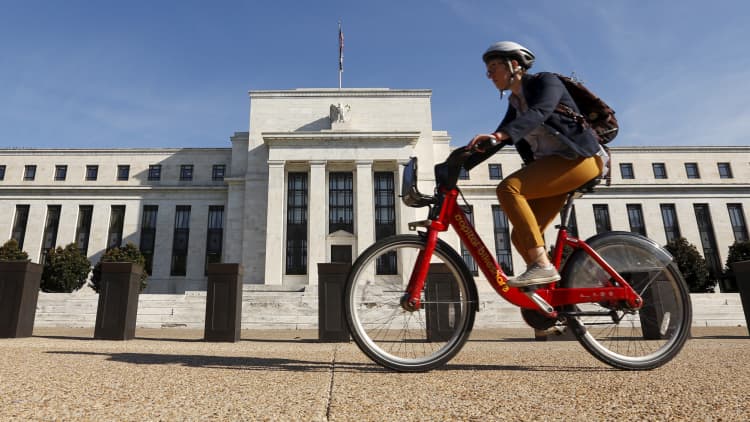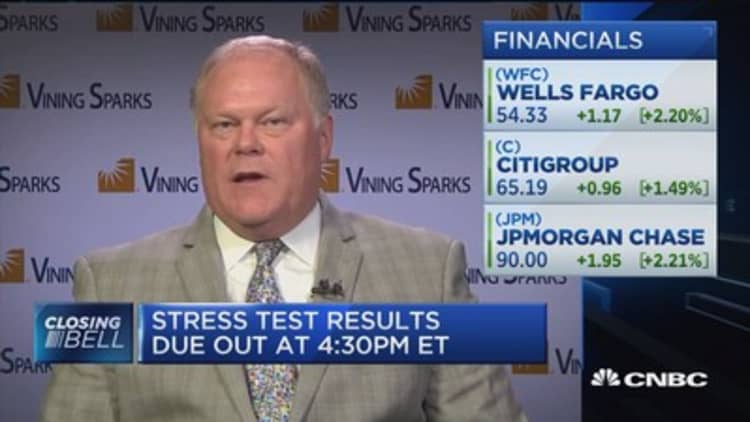
For the first time in seven years, the Federal Reserve did not object to any of the capital plans of 34 banks it reviewed in the second part of the annual stress tests implemented in the wake of the financial crisis.
Only Capital One Financial needed to submit a new capital plan by Dec. 28 in order to address "weaknesses in its capital planning process."
"I'm pleased that the [stress test] process has motivated all of the largest banks to achieve healthy capital levels and most to substantially improve their capital planning processes," Fed Governor Jerome H. Powell said in a release.
Last Thursday, all 34 banks passed the Dodd-Frank Act Stress Tests for the third time by topping the Fed's requirements for being able to handle a severe recession. Wednesday's results from the Comprehensive Capital Analysis and Review, or CCAR, marked the first time since the test launched seven years ago that the Fed did not object to any of the banks' capital plans.
Senior Federal Reserve officials said on a call with journalists that the number of banks tested this year has declined from previous years, and that not objecting to a plan doesn't mean a bank has fully met the Fed's expectations.
Just 13 of the banks, which had assets of more than $250 billion, were subject to a more rigorous qualitative assessment within CCAR.
"However, these firms continue to have areas of weaknesses that fall short of meeting supervisory expectations for capital planning," the Fed's report on the CCAR results said.
The 33 banks whose plans the Fed unconditionally did not object to were:
Ally Financial, American Express, BancWest, Bank of America; The Bank of New York Mellon, BB&T; BBVA Compass Bancshares; BMO Financial; CIT.; Citigroup; Citizens Financial; Comerica; Deutsche Bank Trust; Discover Financial Services; Fifth Third Bancorp; Goldman Sachs; HSBC North America; Huntington Bancshares; JPMorgan Chase; Keycorp; M&T Bank; Morgan Stanley; MUFG Americas Holdings; Northern Trust; PNC Financial Services; Regions Financial Corporation; Santander Holdings USA; State Street; SunTrust Banks; TD Group US Holdings; U.S. Bancorp; Wells Fargo; and Zions Bancorporation.
JPMorgan announced its biggest ever share repurchase program since the financial crisis, and Citigroup announced its largest ever buyback program, according S&P Global Market Intelligence.
Bank of America raised its quarterly divided to 12 cents a share, clearing the way for Warren Buffett's Berkshire Hathaway to become its biggest shareholder.
On Tuesday, Fed Chair Janet Yellen said the banks are "very much stronger this year." She also made a strong statement predicting a financial crisis like the one of 2008 would not likely happen "in our lifetime."
However, noted Rafferty Capital banks analyst Dick Bove wrote Wednesday in an op-ed on CNBC.com that Yellen may be forgetting that while banks may have healthier levels of capital, they no longer have the protection of a government bailout.
—CNBC's Dawn Giel and Jeff Cox contributed to this report.
Watch: Pricing power in regional banks



